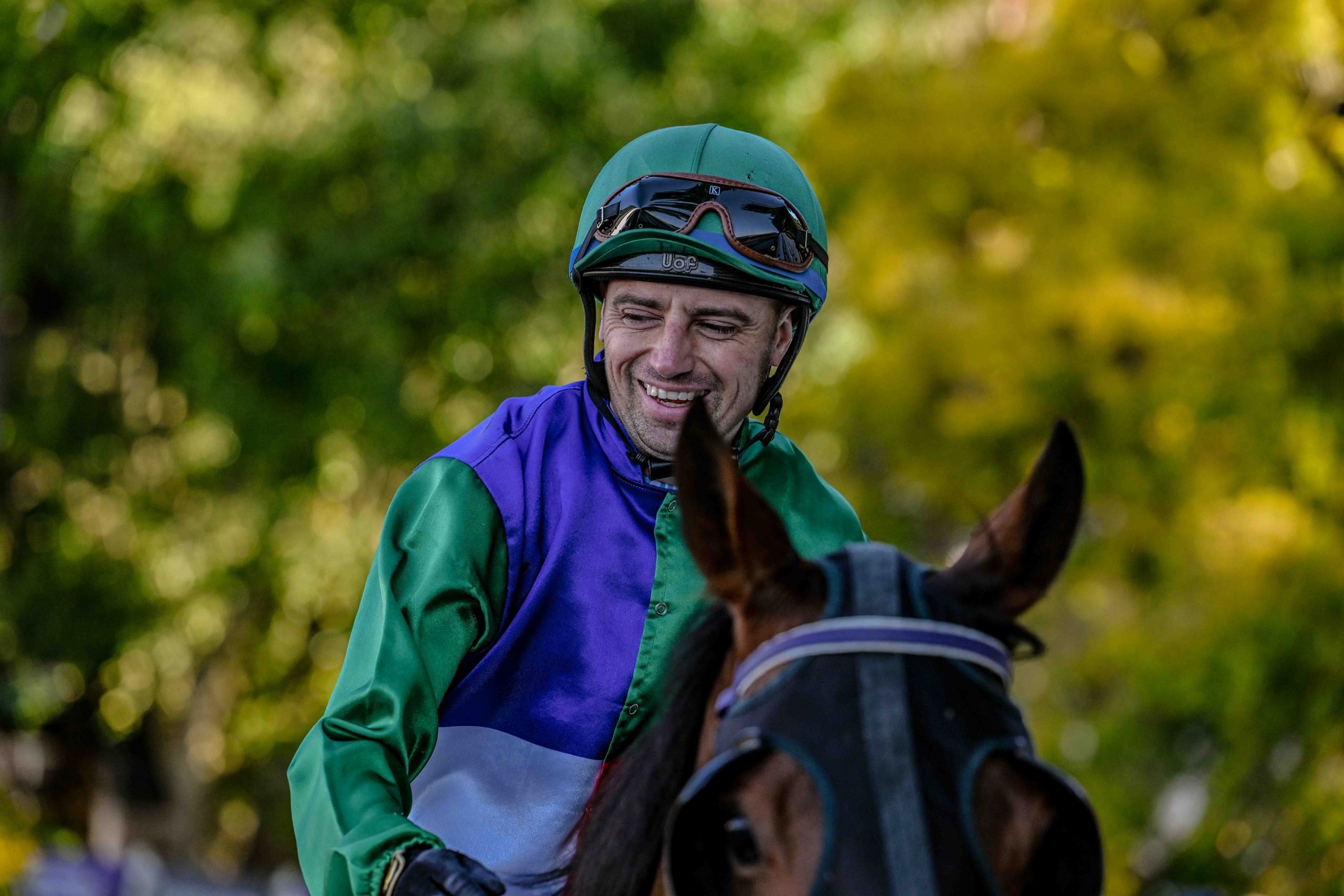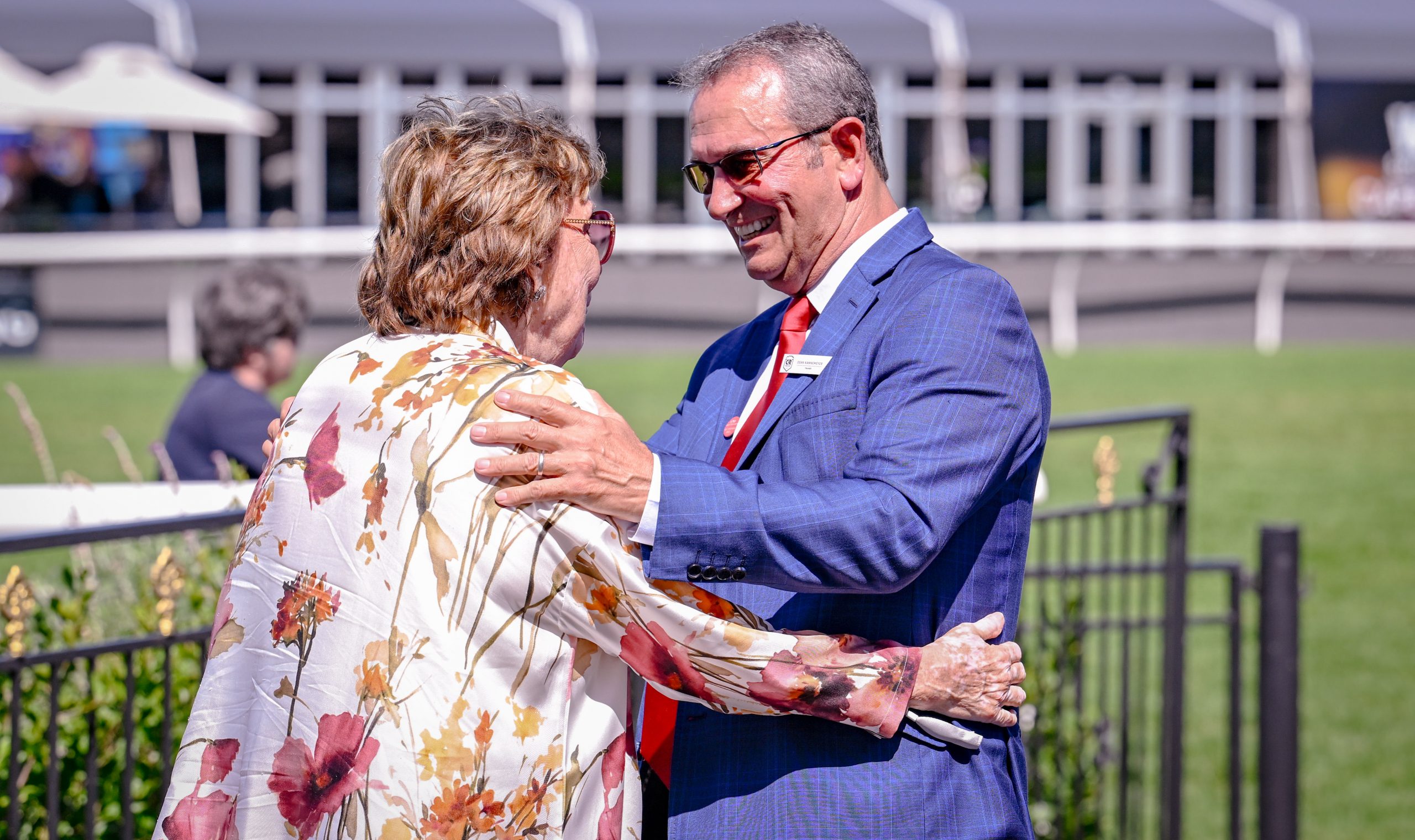Michael Clower’s suggestion that jump racing could be a means to attract the crowds back to races has elicited some healthy debate.
Stewart Ramsay writes in the Sporting Post Mailbag that he read the story on Michael Clower, with interest.

Fred Rickaby rasps the teeth of Tableland, winner of eight races
His thoughts on jump racing are interesting.
Michael will be interested to know that jump racing between races was introduced at Scottsville in the 1970’s.
Owing to his background in British racinG, the jump racing was an initiative of the late Fred Rickaby. He trained and prepared the horses for the events.
The experiment unfortunately failed due to lack of public interested and tote support.
The fact that there were a limited number of horses participating also probably contributed to the failure. .
Ed – some background on Fred Rickaby makes for interesting reading:
 Having briefly kept a pub (The Wheatsheaf) in Peterborough, Fred – with his wife and two sons – decided to escape the post-war austerity of England. South Africa’s champion jockey, Tiger Wright, was trying his luck in England at the time, and Fred was mightily impressed with his ability.
Having briefly kept a pub (The Wheatsheaf) in Peterborough, Fred – with his wife and two sons – decided to escape the post-war austerity of England. South Africa’s champion jockey, Tiger Wright, was trying his luck in England at the time, and Fred was mightily impressed with his ability.
Between them, they planned to take South Africa’s local racing scene by storm, with Fred training and Tiger riding.
Writing of South Africa in 1946, Fred penned ‘I had expected it to be different from England, but the contrast was extreme. The glorious climate and general love of life was infectious. By God! I was glad to be there.’
Fred and Tiger started from the bottom with no stables, training gallop, horse transport or nearby vet, but, as Fred commented, ‘Our enthusiasm blinded us to the impossibility of the whole thing and we battled on regardless.’ Training from a maize farm 50 kilometres east of Johannesburg, they had, after months of struggle, their first winner, Trunk Call.
 Realistically, they mutually agreed that their dream was just that – a dream – and, amicably, they parted. Fred moved on to a smallholding near Newmarket racecourse in Alberton. After five years of limited success, he relocated to yet another Newmarket and some old stables near Greyville. Here his luck changed when the sugar baron Douglas Saunders became his principal owner.
Realistically, they mutually agreed that their dream was just that – a dream – and, amicably, they parted. Fred moved on to a smallholding near Newmarket racecourse in Alberton. After five years of limited success, he relocated to yet another Newmarket and some old stables near Greyville. Here his luck changed when the sugar baron Douglas Saunders became his principal owner.
Fred then won most of South Africa’s major races including the Natal Derby (Beau Sabreue), the Cape of Good Hope Derby (Aztec), the Cape Guineas (Savonarola), the Durban July Handicap (Jollify, Naval Escort and Sledgehammer) and the Holiday Inns Handicap (Majestic Crown). He became South Africa’s leading trainer in 1975, returning to England two years later and becoming a bloodstock adviser.
Fred also had the knack of producing first-rate jockeys: one of his stable apprentices was John Gorton, who was to win the Epsom Oaks on Sleeping Partner, and Michael Roberts who, in 1992, became Britain’s champion jockey.
In May, 2008, he paid a nostalgic visit to Market Rasen where, as a young man, he had ridden 60 winners.
Fred died aged 93 at Boston, in Lincolnshire, on 30 January 2010.








